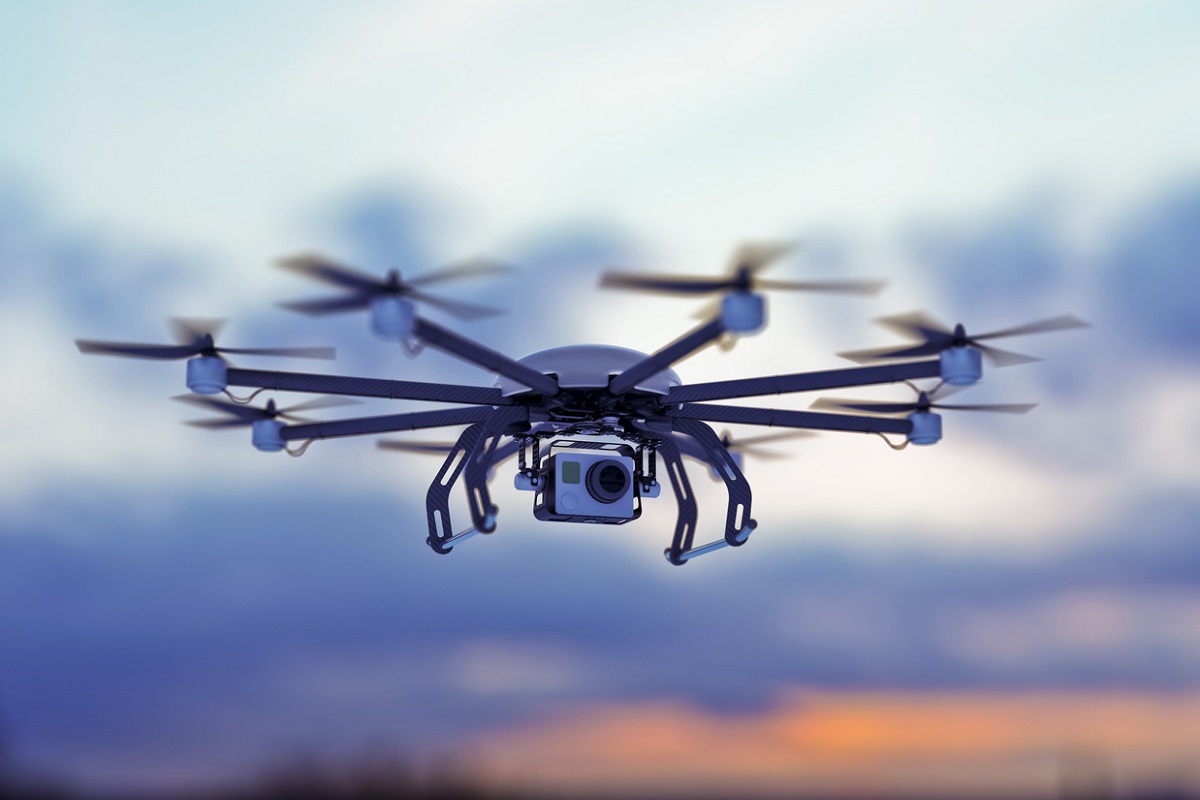Indian Institute of Technology (IIT) Roorkee has inaugurated a state-of-art Centre for Drone Research on the campus. The initiative has secured a seed funding of INR 100.38 lakhs from alumni of the 1994 batch on the occasion of their Silver Jubilee Reunion.
This Centre is envisaged to evolve as a unique facility at the national level wherein state-of-the-art and frontier research would be conducted on several aspects of Drone technology, including Drone development, Drone applications and Anti-Drone technology.
Advertisement
It was inaugurated at a virtual ceremony that witnessed the august presence of Dr VK Saraswat, Member, NITI Aayog and former Director-General, DRDO as the Chief Guest, Dr RK Tyagi, a Distinguished Alumnus of IIT Roorkee, and former Chairman, Hindustan Aeronautics Limited and Pawan Hans Limited, BVR Mohan Reddy, Chairman, Board of Directors, IIT Roorkee, Prof Ajit K Chaturvedi, Director, IIT Roorkee, Prof Manoranjan Parida, Deputy Director, IIT Roorkee, Amit Sinha, IIT Roorkee alumnus, Prof Manish Shrikhande, Dean Sponsored Research and Industrial Consultancy, Prof BR Gurjar, Dean of Resources & Alumni Affairs, Prof Dharmendra Singh, Department of Electronics and Communication, and Prof. RD Garg, Dept of Civil Engg., IIT Roorkee.
On the occasion, Dr VK Saraswat, the Chief Guest and Member, NITI Aayog, said, “I would like to congratulate IIT Roorkee for this initiative. The drone segment has witnessed a surge in demand by leaps and bounds and is currently being harnessed by 50-60 academic institutions for developing a variety of applications. The growth of this segment aligns to the Hon’ble Prime Minister Shri Narendra Modi’s vision of Aatma Nirbhar Bharat.”
He also stressed the significance of indigenization in the design process of drones and the need for prudent business models to make them commercially viable.
BVR Mohan Reddy, Chairman, Board of Governors, IIT Roorkee, said, “Sincere thanks to the 1994 alumni for his noble gesture. The drone market is pegged at 128 billion and has around 38 different areas of application. Hence there is a huge opportunity in this segment, especially in the healthcare and social impact domains.”
He also emphasised the need to promote entrepreneurship and incubation of ground-breaking ideas in the drone segment.
Prof Ajit K Chaturvedi, Director, IIT Roorkee, said, “We are grateful to Dr VK Saraswat, Chief Guest and Dr RK Tyagi, Guest of Honour for gracing this occasion. The idea of the drone research centre took shape in 2019 on the initiative of the 1994 batch alumni. We intend to scale up the initiative and tap more avenues to foster cutting-edge research and innovation in this direction. We also propose a Coordination Committee comprising of a few alumni of the 1994 batch and the IIT Roorkee management to meet annually and work with a shared vision in this segment.”
Drones are extensively used by the military in today’s world. Goldman had estimated that global militaries expenditure of approximately $70 billion on drones by 2020. They play an important role in the resolution of the conflicts and also quite helpful in the replacement of the human pilot to carry out time-sensitive missions and execution of high-profile projects.
Drones can be used significantly in rural areas to improve the life of the people living there, especially when it concerns their needs to access healthcare. These communities require a more fast and vibrant transport system to handle the health problems by transporting vaccines, medicines, blood packs from hospitals to health post locations.
Some of their other applications include videography of an accident site to preserve the clues which include photography, video clips taken during accident/disasters, to monitor the search, rescue and relief operations: one example is the usage of thermal sensors, the progress of major projects such as a construction site, monitoring of animal populations to ensure wildlife protection, condition of tracks during breaches, floods and landslides, crowd management during major fairs and melas, mapping of various railway stations and yards performed for project planning purpose and much more.









